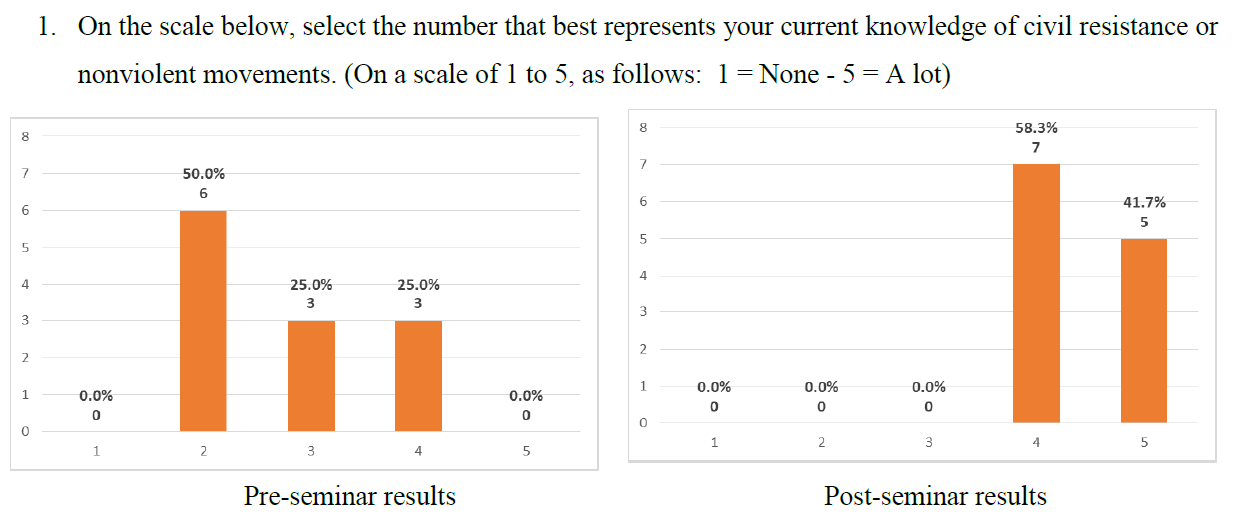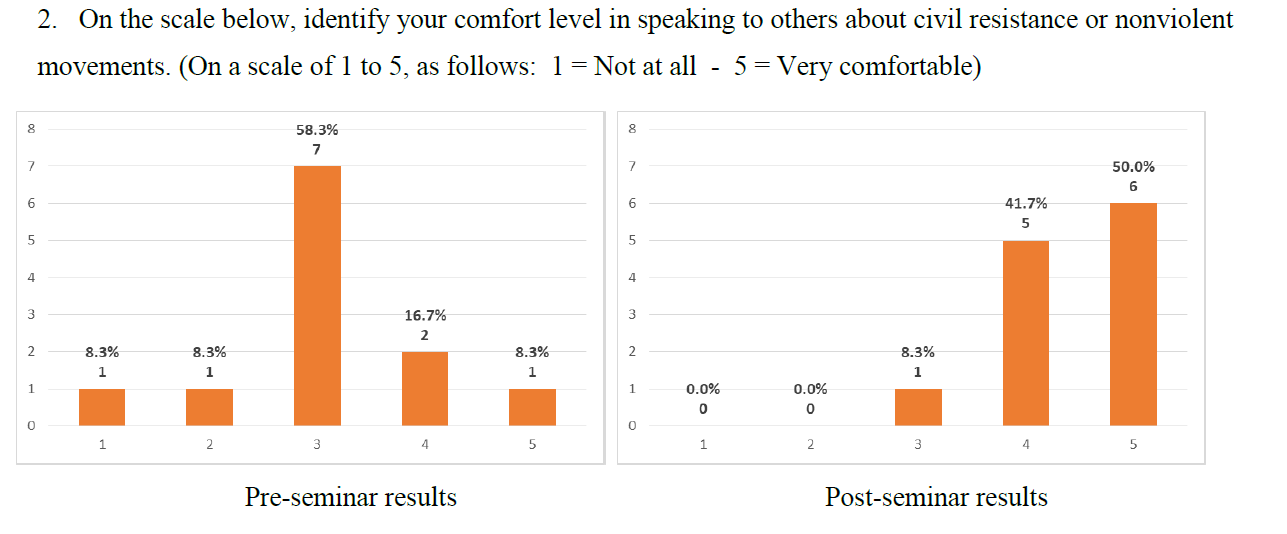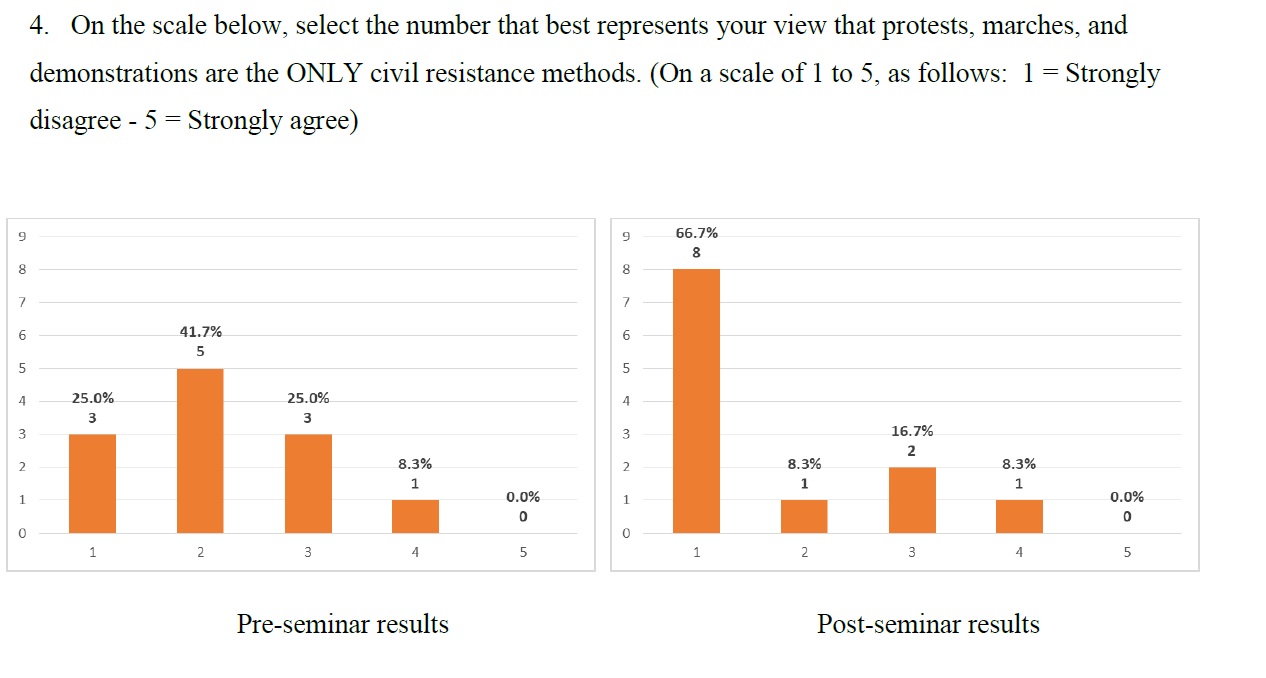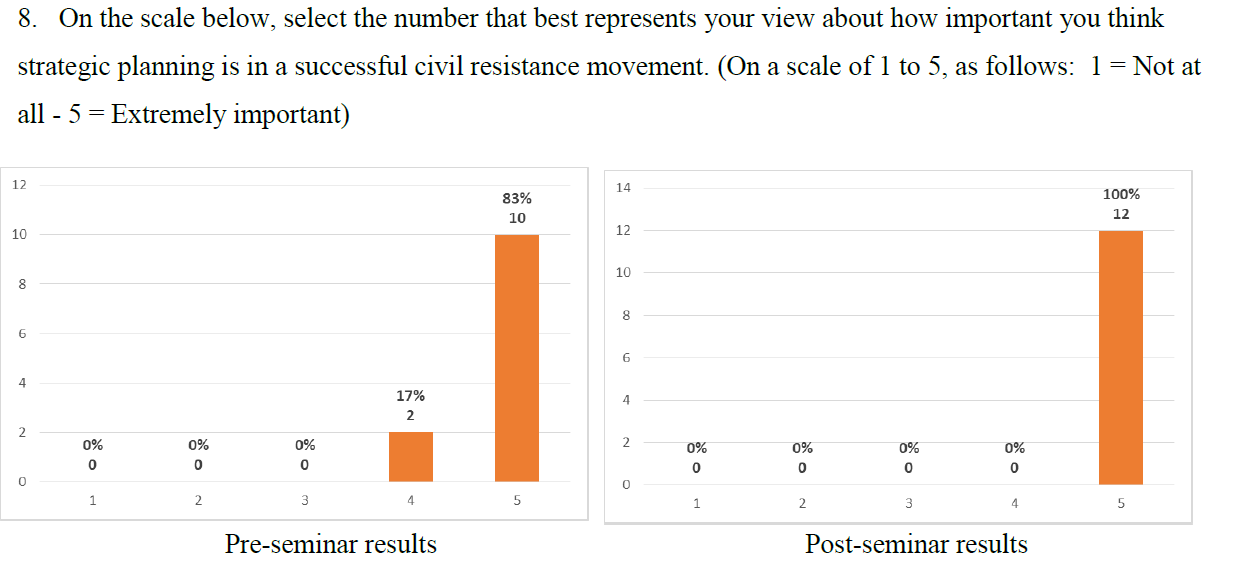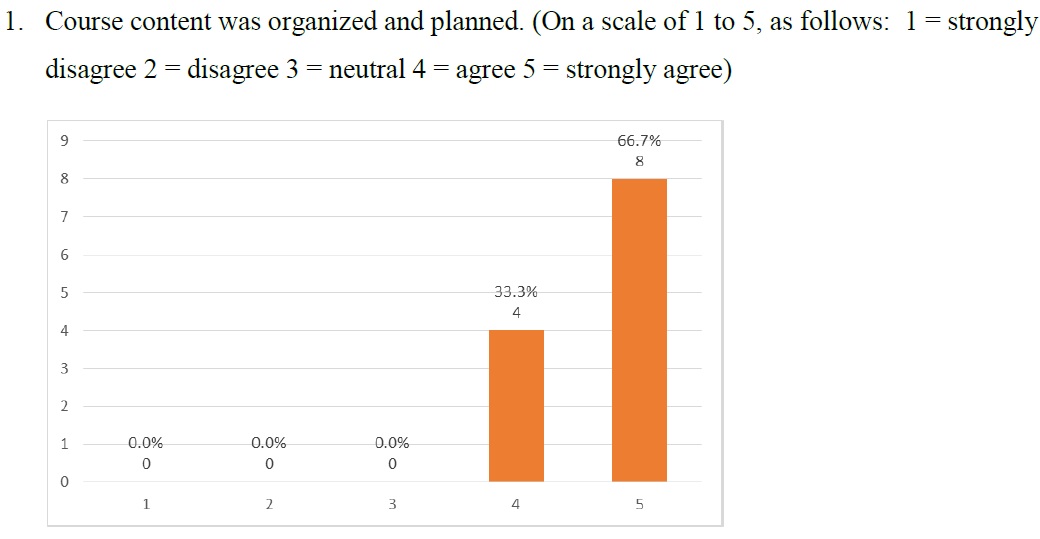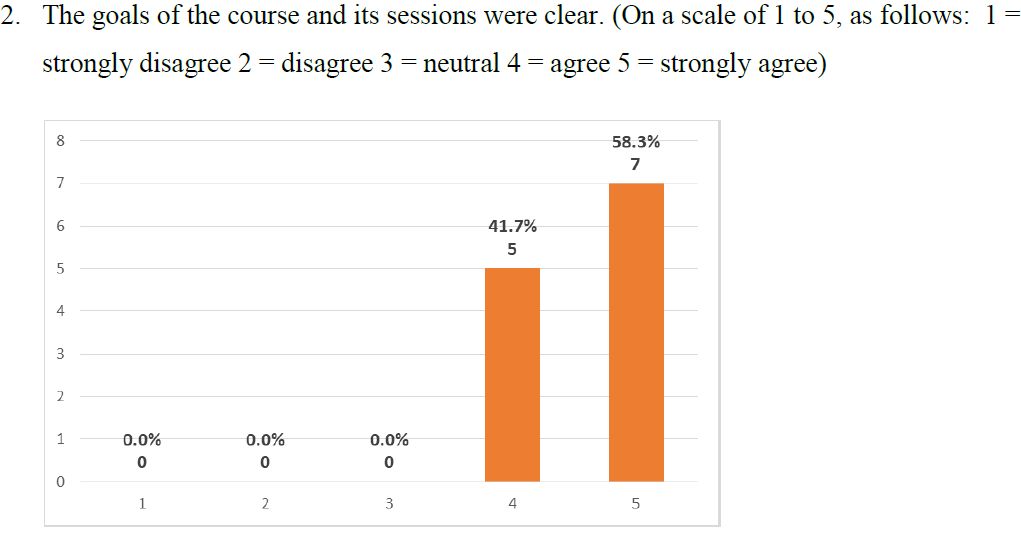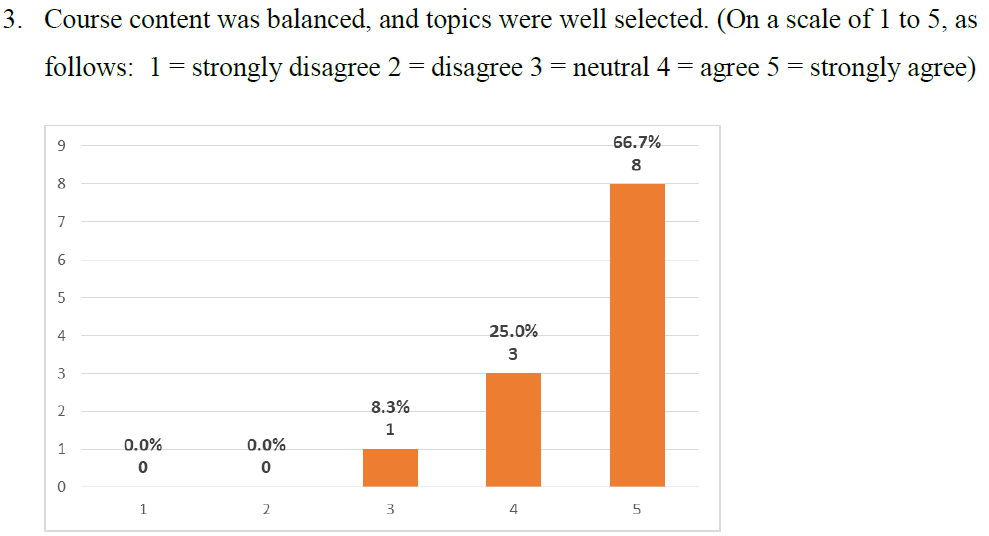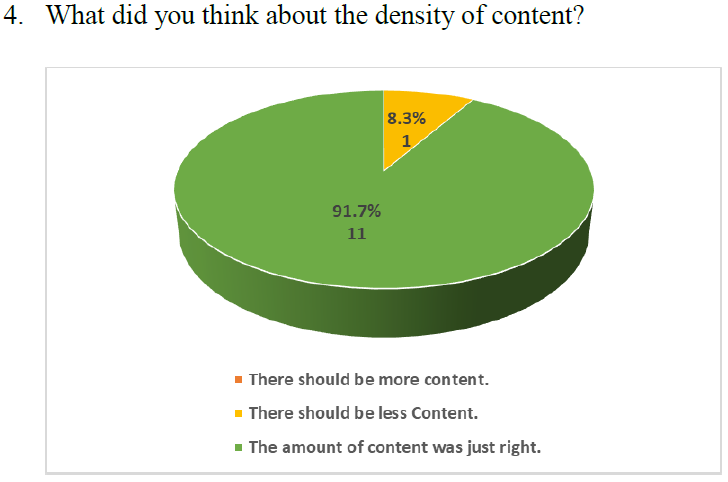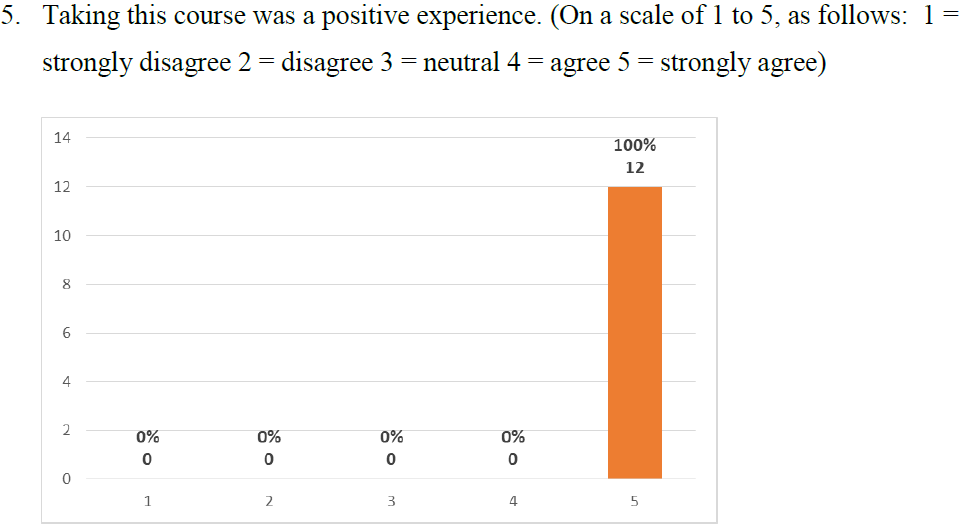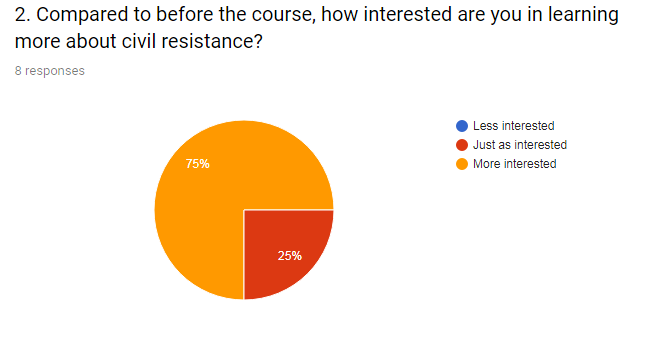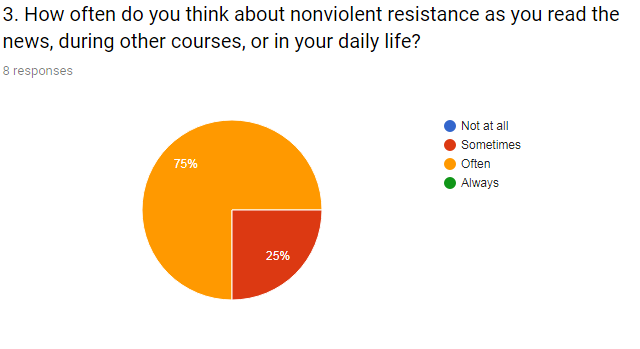"Civil Resistance" Taught by 2017 ICNC Curriculum Fellow
Hasan Habes, a 2017 ICNC Curriculum Fellow, developed and moderated a classroom-based course on civil resistance in Fall 2017 at Åbo 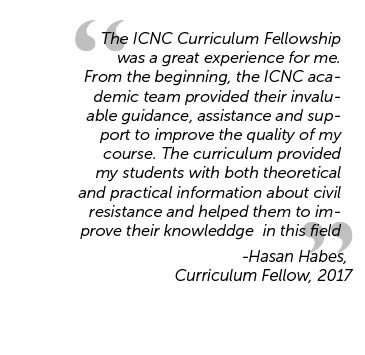 Akademi University in Vaasa, Finland. His course was available to graduate and undergraduate students and 12 students completed the course. The course ran from September 26, 2017 to November 22, 2017.
Akademi University in Vaasa, Finland. His course was available to graduate and undergraduate students and 12 students completed the course. The course ran from September 26, 2017 to November 22, 2017.
The information featured below was submitted as part of the fellowship requirement for a classroom-based course that required a detailed course proposal with clearly developed sections on civil resistance, assigned readings, assignments relevant to the subject matter and evaluation tools.
Learn more by using the navigation menu on the left or the by clicking on the topic links below:
About the Curriculum Fellow
Course Title, Location, & Abstract
Learning Gains Survey Results
Final Evaluation Results
Testimonials
Three Month Follow-up Survey
About the Curriculum Fellow
 Hasan Habes is an educator, activist and researcher. He is currently a Ph.D. candidate and a lecturer in Peace, Mediation and Conflict Research Program at Åbo Akademi University in Vaasa, Finland and holds a Master’s degree from the same university. He specializes in nonviolent discipline and his research examines how to transform the radical flanks’ violent behaviors to nonviolent ones in Turkey. In addition, he has a MA degree in international relations concentrating on “the impact of education in conflict resolution in Cyprus” from Eastern Mediterranean University, Cyprus. He was actively involved in the Gezi resistance in Turkey in 2014 and his master’s dissertation focused on the identification and elimination of the radical flanks during a nonviolent action. In it, he proposed policy recommendations to the organizers and practitioners how to keep the nonviolent discipline during nonviolent action campaigns.
Hasan Habes is an educator, activist and researcher. He is currently a Ph.D. candidate and a lecturer in Peace, Mediation and Conflict Research Program at Åbo Akademi University in Vaasa, Finland and holds a Master’s degree from the same university. He specializes in nonviolent discipline and his research examines how to transform the radical flanks’ violent behaviors to nonviolent ones in Turkey. In addition, he has a MA degree in international relations concentrating on “the impact of education in conflict resolution in Cyprus” from Eastern Mediterranean University, Cyprus. He was actively involved in the Gezi resistance in Turkey in 2014 and his master’s dissertation focused on the identification and elimination of the radical flanks during a nonviolent action. In it, he proposed policy recommendations to the organizers and practitioners how to keep the nonviolent discipline during nonviolent action campaigns.
Course Title, Location, & Abstract
Course Title: Civil Resistance
Location: Peace, Mediation & Conflict Research Program at Åbo Akademi University in Vaasa, Finland
Course Abstract: The aim of the course is to introduce the main concepts and ideas of civil resistance and discuss various historical and contemporary cases of nonviolent campaigns and movements. The students will explore some of the common misconceptions about nonviolent struggles as well as strategies and tactics. In this way the students will learn to distinguish strategy from tactics and they will be able to relate these in the context of civil resistance. Also, students will discover how the external actors play a significant role to facilitate and support these movements. By the end of the course, the students will be able to analyze the core elements of civil resistance movements and reflect on the effectiveness of these movements and their underlying political power. The students will be able to have a better understanding of the impact of violent flanks on the nonviolent action campaigns and the importance of the nonviolent discipline. Also, the students will learn and understand about different ways that movements can fail, the causes as well as the possible alternative strategies to prevent these failures. The course will provide an interactive and structured classroom based learning environment with the activating methods techniques. So the students can become more informed observers of nonviolent conflicts and effective conveyors of civil resistance knowledge.
Learning Gains Survey Results
The Learning Gains Survey aims to measure knowledge gains among course participants. Participants take the Pre-Seminar Survey at the beginning of the course and take an identical survey (Post-Seminar) at the end of the course. Included below are selected graphed responses to selected questions from the Pre-Seminar and Post-Seminar Surveys.
- In the pre-seminar learning gains survey, half of participants (50%) had a very little knowledge, and one third of participants (25%) have some knowledge about civil resistance. None of the participants marked their knowledge as a lot. After the seminar, 42.7% of participants gained a lot of knowledge and 58.3% of participants gained good amount of knowledge about civil resistance.
- In the pre-seminar learning gains survey, 16% of participants didn’t feel comfortable, and 58% of participants felt somehow comfortable speaking to others about civil resistance. Before the seminar, only one third of participants (25%) felt comfortable speaking about the subject matter. After the seminar, over 91% of participants felt very comfortable speaking to others about civil resistance.
- One third of participants (25%) believed that protests, marches and demonstrations are not the only civil resistance methods in the pre-seminar leaning gains survey. The number of participants who held this view increased to over 66% after the seminar.
- In the pre-seminar learning gains survey, 83% of participants thought that strategic planning is extremely important. After the seminar, all participants (100%) shared the same view.
In general, the surveys illustrated a positive trend in the knowledge gains achieved by participants as a result of the course.The largest learning gain was regarding participants’ comfort level talking about civil resistance, with only 8% of pre-course respondents reporting that they were very comfortable talking about civil resistance. 50% of post-course respondents reported feeling very confident talking about civil resistance, which was a 42% increase.
Final Evaluation Results
Included below are graphed responses to selected questions from the Final Course Evaluation.
- 66.7% of participants strongly agreed that the course was organized and planned.
- 58.3% participants strongly agreed that the goals and sessions of the course were clear. None of the participants felt that the goals and sessions were unclear.
- 66.7% of course participants strongly agreed that the course content was balanced and topics were well selected. None of the participants felt that the course was not well balanced.
- 91.7% of participants felt like the amount of content for the course was just right. Only 8.3% felt like there should have been less course content.
- 100% of course participants felt like the course was a positive experience for them.
Overall, the majority of course participants felt that the course was well-structured with substantive content. As the graphs show, the course participants had positive reports about the instructor and the course.
Testimonials
- “The course was very good, and it is the students who needs to engage more in the lesson, as each class was thoroughly prepared and offered new learning experiences and knowledge;”
- “The course was good, it was one of the best methods of teaching I have ever experienced”
- “In my opinion this course was able to meet up my expectation by providing enough material and the classes were informative as well”
- “By taking this course my conception about civil resistance have totally changed and I think it provided enough material.”
Three Month Follow-up Survey
A follow-up survey was sent to course participants three months after the course ended. This survey is intended to measure the long-term impact of the course. See below for selected graphs from the three month follow-up survey.
- Three months after the course had ended, 75% of survey respondents reported that they were more interested in learning about civil resistance than they were before the course.
- 75% of survey respondents reported that they thought about nonviolent resistance on a regular basis throughout their daily lives.
- Over the last three months, 62% of survey respondents had shared their knowledge on civil resistance 6-10 times. 25% of survey respondents had shared their knowledge 1-5 times.
After three months, the course participants who completed the follow-up survey reported that their interest in civil resistance had grown. The majority of survey respondents had also shared their knowledge about civil resistance at least once. This indicates that the course had generated mid to long term interest in civil resistance among course participants.
